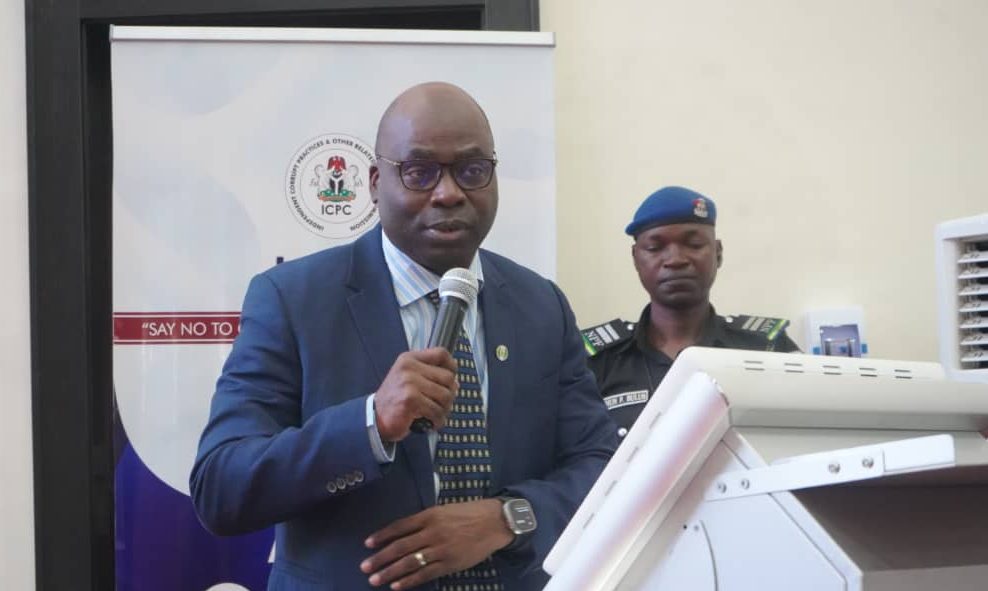The Chairman, Independent Corrupt Practices and Other Related Offences Commission (ICPC), Professor Bolaji Owasanoye, SAN, OFR, has called on the media to be wary of fake news and biased reporting because according to him, “fake news and biased reporting threatens all of us. It threatens the stability of the state and it threatens professional competencies and our livelihoods.”
Professor Owasanoye gave the advice on Monday at the Commission’s headquarters in Abuja while declaring open a two-day workshop for reporters covering the activities of ICPC.
The Chairman stated that the workshop would offer an opportunity for the Commission and the media to close ranks about deciding how to “continue to communicate professionally bearing the risk of reporting fake news in mind.”
He therefore urged the participants to use the opportunity to establish a relationship with ICPC and not just a relationship that demands the Commission to disclose which high profile case the Commission is investigating, but a relationship that would help discuss how to deal with the scourge of corruption as well as challenges and risks confronting both the media and the anti-corruption agencies globally.
The ICPC boss also revealed that since the first training workshop for journalists was held last year, there had been an improved trajectory of reportage and that this can be further improved by more engagements and sharing of information and perspective with stakeholders such as the workshop in order to close the gaps that have existed.
Earlier in his welcome remark, the Director, Public Enlightenment and Education Department, Mr. Mohammed Ashiru Baba, pointed out how over the years, the press had only focused on the arrest and prosecution of ‘big shots’ in the society, saying that such practice negated the efforts at preventing corruption.
According to him, “This one-sided outlook by the media was due to the erroneous belief by some media practitioners that the fight against corruption begins and ends with arrest and prosecution of the corrupt politically exposed persons.”
Mr. Baba therefore highlighted some of the Commission’s efforts at “enhancing corporate good governance through Anti-Corruption and Transparency Units (ACTUs) in Ministries, Departments and Agencies (MDAs); Systems Study and Review, Ethics and Integrity Scorecards; Corruption Risk Assessments, Youth Outreach and behavioural change strategies conducted by the Anti-Corruption Academy of Nigeria (ACAN),” which the media was hitherto silent about them.
He stated that 90 percent of the Commission’ s activities were preventive and public education in nature which should elicit high level media coverage, adding that even prosecution and convictions ought to be reported widely and positively.
The training session was attended by journalists on the ICPC beat in the Federal Capital Territory and featured insightful presentations on the achievements and initiatives of the Commission, prosecution processes, measuring progressin the fight against corruption presented by ICPC management staff and seasoned media personnel.


